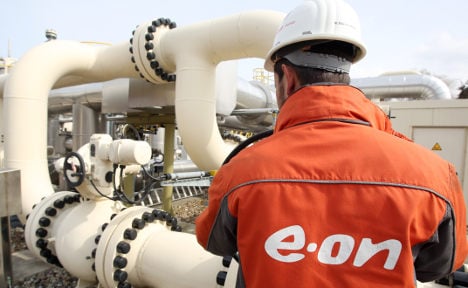E.ON said that its profit fell by 22 percent to €919 million euros from April to June while sales over the same period fell by three percent to €28.7 billion.
In the first six months of the year, however, net profit at the firm climbed by six percent to just over €3 billion despite the slight decline in sales.
But underlying profits, as measured by earnings before interest, tax, depreciation and amortisation (EBITDA), were down by 15 percent at €5.695 billion in the six-month period.
“Midway through 2013, our business performance continues to be in line with expectations,” E.ON said.
The firm said that cost savings brought about by a restructuring programme and higher earnings in the renewables and exploration and production divisions “had a positive impact on earnings”.
But other areas of the company have not performed as well and the company also blamed the “current market situation in fossil-fuelled power generation”.
It said that the power generation business in Europe was suffering from low energy prices due to what it called “interventionist energy policies and regulations.”
AFP/tsb



 Please whitelist us to continue reading.
Please whitelist us to continue reading.
Member comments